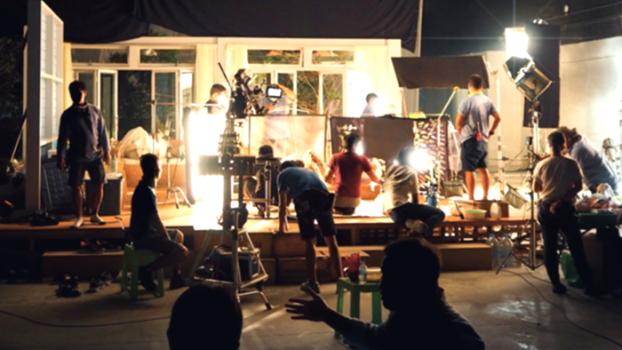
Set designer
Set designers conceptualise, develop and create sets, and dress locations for film, television and stage productions. They study scripts and interpret the descriptions of locations, creating sketches and drawings and translating these into built sets, and locations that are altered or 'dressed' to resemble those in the script. They buy furniture, fixtures and other props, and use art and craft supplies to make other elements of sets, or supervise technicians in building them. They liaise with directors, producers, lighting designers and camera operators to get the right look or feel for a production, and ensure that other areas of technical production such as lighting or sound recording work in conjunction with the set.
Working conditions
Set designers work in film and television studios, and on-location on sets. They often work long hours and may be required on set late at night, early in the morning, or on weekends and public holidays. Some of their work may require heavy lifting or the construction of large objects such as set walls, doors or furniture. They may be required to travel locally, interstate or internationally to construct sets.
Tools and technologies
Set designers work with a range of materials to construct sets, including art and craft supplies such as paper, card and glue, as well as more sturdy building materials like wood, chipboard and plaster. They obtain and work with decorative elements such as fabric, furniture, fixtures and wallpaper. They also use tools such as scissors, hammers, saws, nail and stapleguns, and other light construction equipment.
Education and training
|
To become a set designer you usually need to gain a qualification in live production, production and design, theatre arts, interior design and decoration, industrial design or a related area. The Diploma of Live Production and Technical Services and Advanced Diploma of Live Production and Management Services are offered at the Western Australian Academy of Performing Arts (WAAPA) through Edith Cowan University.
|
Free support and assistance
Your local jobs and Skills Centre can provide free information, support and assistance to help you decide on the best training options to meet your goals.
Disclaimer
The information presented on the occupation profiles within this website is offered as a guide only.

